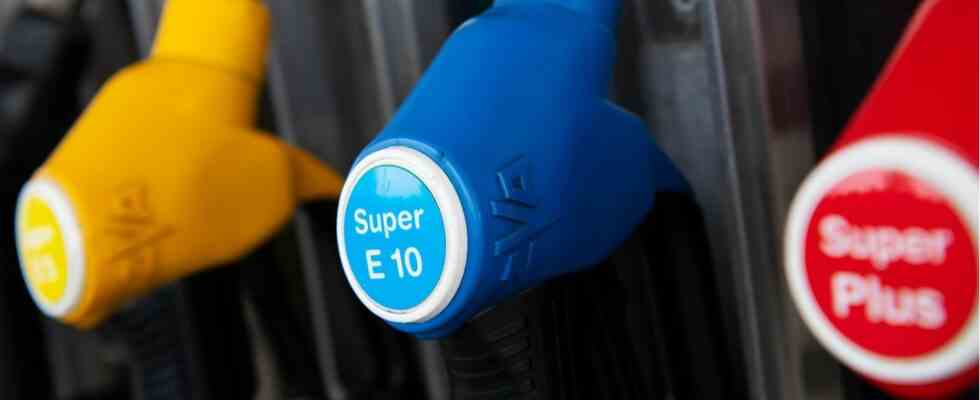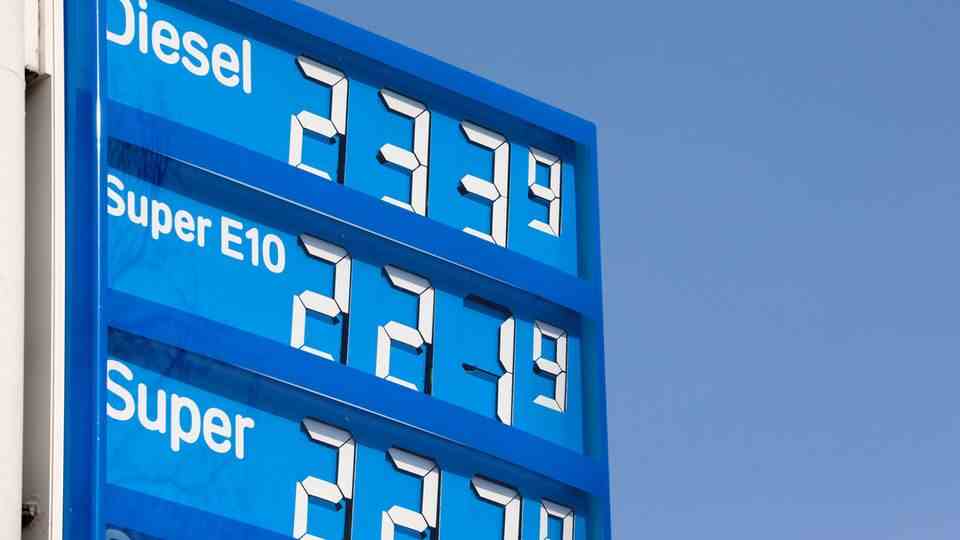Super E10 is cheaper than conventional petrol and protects the environment. However, not all cars tolerate biofuel – many drivers have concerns. So should you fill up with E10 or not? An overview of compatibility, price and benefits.
In addition to conventional petrol, diesel and natural gas, Super E10 can also be found at every filling station. The biofuel E10 has been on the fuel market since 2011 and yet it has not really caught on to this day – there is still a lot of ignorance about biofuel. If you want to save money when filling up and at the same time protect the environment, you should think about using E10.
According to the ADAC, it is “the best remedy for the high fuel prices”. After all, the price per liter is on average five to six cents cheaper than Super E5, the conventional petrol. According to the automobile club, up to four euros can be saved with each tank of fuel, and frequent drivers could even save over 50 euros a year.
And yet the majority of drivers prefer to use the more expensive Super E5. According to the managing director of the Federal Association of the German Bioethanol Industry (BDBe), Stefan Walter, the share of the E10 has increased recently, but in December and January it only accounted for a good 20 percent of petrol consumption in Germany – even if Walter also because of the currently very high petrol prices assumes that the trend will continue.
The BDBe managing director sees a continuing need for information on the subject of E10. Many drivers would still mistakenly assume that the fuel is damaging their vehicle. A spokesman for the biofuel association also told the “Tagesschau”: “There is a long-term acceptance problem.”
Most cars can handle Super E10
E10 differs in its properties from conventional petrol due to its higher ethanol content and thus a higher octane number than conventional petrol. The “E” stands for ethanol, which is obtained from grain, corn or sugar beets, and the number “10” for the percentage in petrol. In 2011, the so-called biofuel was introduced at German filling stations. Before that, the permissible ethanol content in petrol was limited to a maximum of five percent (E5).
So the Super E10 unsettles many drivers at the pump. The ADAC explains: “Almost all petrol cars in stock are now suitable for E10.” As a rule, all vehicles built after November 2010 would tolerate the E10. We are talking about around 90 percent of all cars. But also many old and youngtimers could use the petrol with the up to ten percent bioethanol content without damage.
However, if you are unsure whether your car really tolerates the E10, you can look it up in your vehicle’s operating instructions. Alternatively, information can be obtained from the vehicle manufacturer, dealer, workshop or online from Deutsche Automobil Treuhand GmbH and the European Association of Automobile Manufacturers ACEA.
However, if a car does not tolerate the Super E10, the fuel can attack aluminum components as well as seals and lines in the fuel system after refueling – and thus become a safety risk. If a car is E10-compatible, you don’t have to worry about possible damage. “The use of E10 has no effect on functional reliability, service life and wear and tear,” says ADAC. E10 and E5 can also be filled up alternately without hesitation – provided, of course, that the car can handle the E10.
There are also concerns about the effects of E10 on fuel consumption. Its use causes a “theoretical” additional consumption of about one percent. The automobile club is nevertheless certain: “With the same driving style, it is worth filling up with E10, even if the energy content is somewhat lower.”
Climate friendly or not?
In addition, there is criticism of the environmental balance of biofuel. According to the ADAC, the biofuel is “largely climate-neutral”. Because the CO2 emitted when driving is first removed from the atmosphere by the plants. In addition, the E10 reduces nitrogen oxides and particulate matter. According to the Automobile Club, the biofuel could save up to three million tons of CO2 a year in road traffic.
However, arable land is required to produce biofuel. There is therefore concern that sensitive areas such as forests and thus habitats will be converted into farmland. There are also fears of competition for land for food production or negative effects from changes in land use. The consequence would be very high greenhouse gas emissions.
According to the BDBe, however, only four percent of the grain harvest and two percent of the arable land are used for German bioethanol production. And in Germany, the Biofuel Sustainability Ordinance stipulates that no areas with a high carbon content or high biological diversity may be used to grow plants for biofuel production. In addition, the grain used can only be used for fodder, but not for eating, according to the BDBe managing director Walter to the “Tagesschau”. And by-products can arise during production – such as protein-containing animal feed that can replace soy imports.
However, environmentalists see it differently. Since the start of the Ukraine war, numerous environmental organizations have criticized the biofuel producers. Greenpeace calls for a ban on biofuel. “Fresh oil like rapeseed oil does not belong in the tank, but on the dining table,” quotes the “Tagesschau” Martin Hofstetter, Greenpeace expert on agriculture. According to him, the amount of rapeseed oil used annually in car fuel instead of cooking and food is twelve liters per person.
Agriculture Minister Cem Özdemir describes biofuel as “unsustainable”
Meanwhile, the E10 is also a topic in politics. Agriculture Minister Cem Özdemir is also in favor of using less grain for fuel production. “It’s not sustainable to pour wheat and corn into the tank,” said the Green politician. Federal Development Aid Minister Svenja Schulze made a similar statement. In the tank, corn and grain are the worst off in these difficult times, said the SPD politician.
Manufacturers, on the other hand, continue to support biofuel. “The use of biofuels should not be restricted by law,” demands the Association of the German Biofuels Industry. The market reacts to the war, which has an effect. “It’s hardly worth producing for producers at the moment,” it says.
In addition, E10 contributes to nutrition and industrial production at the same time. In fact, bioethanol is also used, for example, as a chemical solvent, cleaning agent and antifreeze, in the medical field or as a fuel.
Sources: ADAC, VCD, AVD, BDBE, daily Newswith material from the dpa



